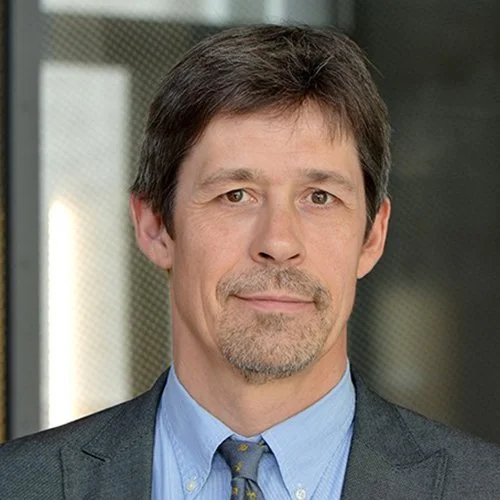Daniel Besser, PhD
Daniel Besser, PhD
German Stem Cell Network (GSCN), Germany
Hometown
Lübeck, Germany
Current Residence
Berlin, Germany
Graduate Degree
PhD, University Basel, Switzerland
Current Position
Managing Director of the German Stem Cell Network (GSCN), Berlin
-
The German Stem Cell Network (GSCN) aims to provide an interface between science, education, politics, and society as a whole. The central task of the GSCN is to pool the expertise in stem cell research in Germany and develop synergies between basic research, regenerative medicine, and pharmacology. The initiative promotes innovative research activities on a national and international level. Targeted information and events are offered, encouraging public discourse on stem cell research. As the Managing Director I oversee all the activities of the network and support the Executive and Extended Boards of the GSCN in developing new initiatives. I also lay the ground work for the GSCN Annual Conference and workshops.
-
Even back in my final years of high school I had Biology as a major and was fascinated by genes and genomes, and their potential to create a perfect organism with one genome in all of its billion cells. That’s when I made my decision: I wanted to study biology with a focus on molecular mechanisms in cells. I was accepted at the Free University Berlin and could follow my dream. I studied gene regulation and continued with signal transduction in my graduate work at the Friedrich-Miescher-Institut in Basel and postdoctoral work at Rockefeller University. After the team of Jamie Thomson isolated the first human embryonic stem cells (hESC) in 1998, for the first time researchers were able to glimpse into early human development--which had up till then eluded scientific experimentation. This also sparked my curiosity, and I was very happy when I had the chance to work with these cells in the laboratory of Ali H. Brivanlou starting 2003. I had studied signal transduction of Stat proteins at the time with James Darnell and we wanted to know which role Stat3/gp130 signaling had in hESCs. We realized early on that this signaling pathway was indeed not as important in hESCs as in its mouse counterparts, but we identified Activin/Nodal signaling as well as inhibition of BMP signaling as extremely important. Since the time in Ali’s lab, embryonic stem cells were at the core of my scientific work, and continue to fascinate me.
-
Overseeing the tremendous progress in the different areas of stem cell research--from basic research to translation into applications--as well as interacting and educating the public and stakeholders on stem cells research is very satisfying and exciting for me in my current position as Managing Director of the GSCN.
-
Stay open to all directions that your experimentation might take you. Know the literature well, but always take publications with a grain of salt, especially if your own results lead you in a different direction. Make good friends in the science world; they might be able to help you along your career path, as you might be able to help them in future endeavours.
-
I’m extremely thankful to my PhD supervisor Yoshikuni Nagamine during my time at the Friedrich Miescher Institute (FMI) in Basel for giving me the freedom and the guidance to pursue my scientific ambition. Of course, many more persons significantly influenced my path in science. I’m truly grateful for the opportunity to have worked with the late Hidesaburo Hanafusa and James E. Darnell at Rockefeller as well as to stay at Rockefeller during very exciting times with many amazing scientists. I’m very thankful to Ali H. Brivanlou who introduced me to the world of stem cells and early vertebrate development, as well as Walter Birchmeier at the Max Delbrück Center for giving me the opportunity to start my own scientific projects.
-
I enjoy camping and outdoor life in the country side around Berlin and in other countries especially in the family holiday home in Sweden with our VW bus. I love watersports like kayaking, sailing, and taking the SUP (Stand-Up-Paddle board) for a spin.
-
During a family holiday in Finland back in the last millennium, it must have been in the ‘70s, I learned how to count to 10 in Finnish and I still remember: Yksi, kaksi, kolme…
-
The ISSCR is THE international association to connect with the world of stem cell research and with all researchers globally. The ISSCR annual meeting is the place to be if you want to network, get new ideas, learn new technologies, interact with companies in the field and most of all make new acquaintances and meet old colleagues.

